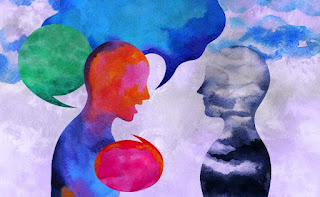Biases Hindering Critical Thinking
In today’s complex world, we often find ourselves stuck in decision-making because we pick all related information and try to analyze it without giving a second thought on whether that information is actually relevant or just seems to be relevant. To take a sound decision, we need to think upon the given situation critically. In simpler terms, critical thinking is the tool to analyze the quality and relevance of information i.e., whenever we validate the accuracy of the information or confirm the evidence to be in line with the arguments or ask ourselves "How to find out the authenticity of a given statement?”, we engage in critical thinking.
In the process
of looking for the validation of an argument, we encounter certain cognitive
biases that occur when we process and interpret the information. For instance, you
detect your mom’s fury from her speech and conclude that the only reason for
her anger is your messy room. So cognitive bias is not always wrong. It helps
you to process things quickly. However, there could be a possibility that
today, your mom's mood is bad because of that fruit vendor who refused to
bargain the sky-touching price of apple. Now here cognitive bias led you to a
poor judgment of cleaning the room on an urgent basis.
Let us
understand few types of cognitive biases.
1. Bias Blind Spot
We are often
quicker in pointing out other’s biases than analyzing our own bias. For
instance, we may comment that Mr. A has a judgemental mentality, not realising
that we ourselves our judging him.
2. Affect Heuristic
We often rely on
our personal like or dislike for judgment. For instance, Salman Khan is a good
actor because I like Salman Khan.
3. False Consensus Bias
Sometimes we
overestimate the amount of agreement to disagreement with our opinion. For
instance, the eyes of the entire class are speaking that I performed best in
presentation.
4. Clustering Illusion
It makes us seek
patterns in random events and misrepresent correlation with cause. For
instance, petrol prices in India are going up and Taliban has taken over Afghanistan.
Hence, Taliban is spreading violence in Afghanistan because of an upsurge in
the price of petrol in India. This is a clustering illusion
5. Availability Heuristic
This happens
when we overestimate the likelihood of an event after being overly exposed to
similar events. For instance, all my friends are breaking up so if I enter into
a relationship, I might also end breaking it up.
Now that you
know the spots where you can go wrong while thinking critically to make a sound
decision, what are you waiting for! Find out that spot that is hindering your
critical thinking and minimize it as much as you can. Wait! here is an
interesting task for you. Can you identify the type of cognitive bias in the above
mentioned example of mom’s fury and cleaning of messy room? Do let us know your
answer in the comment box.
Sources:
- https://beckisaltzman.com/
- https://www.researchgate.net/publication/316486755_Cognitive_Biases_that_Interfere_with_Critical_Thinking_and_Scientific_Reasoning_A_Course_Module




Comments
Post a Comment